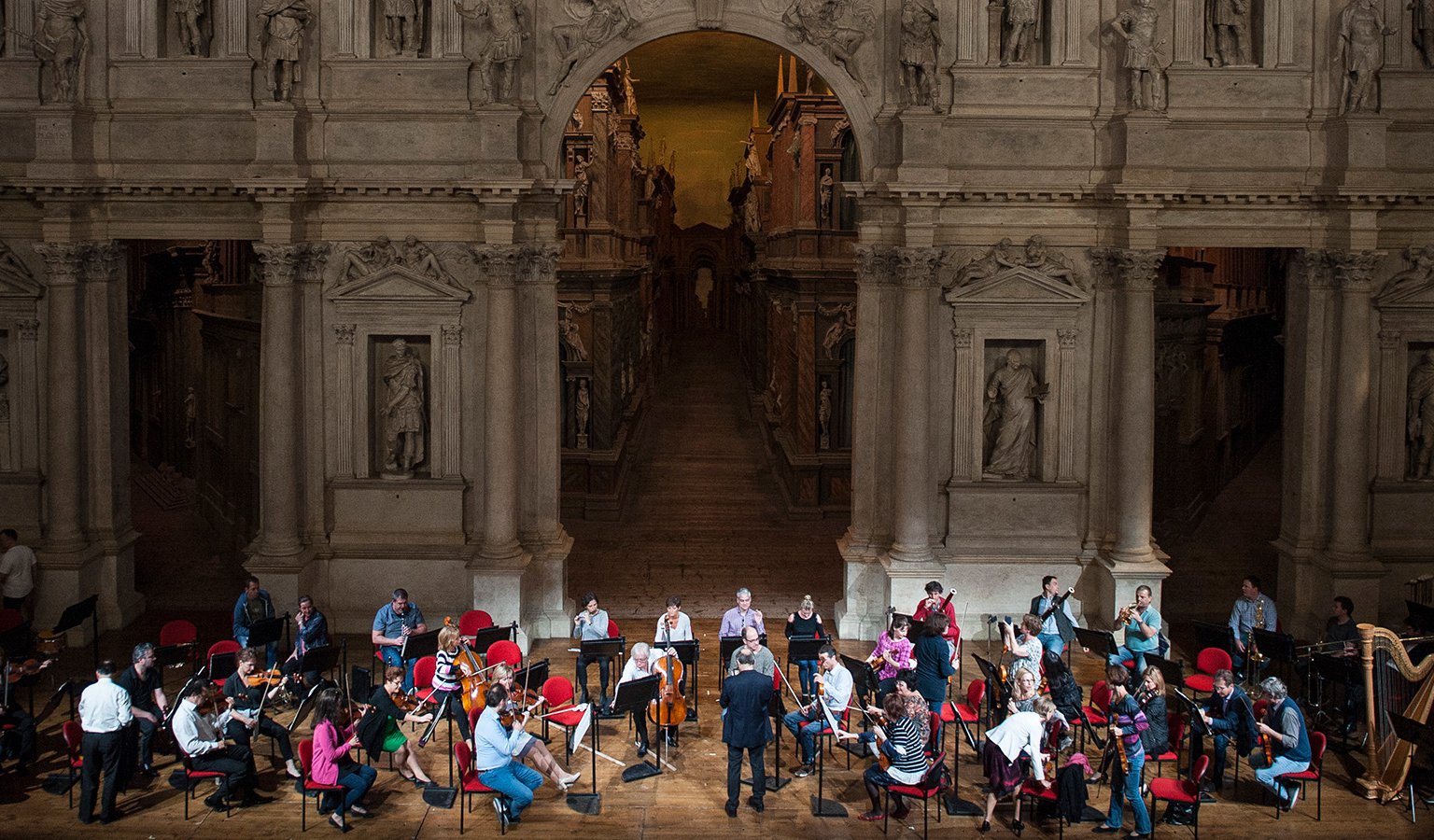
Program
Joseph Haydnbio:
Symphony No. 88 in G major, Hob. I:88
George Frideric Handelbio:
“Invida sorte avara misero in questo dì” (aria from the opera Ariodante, HWV 33)
“Scherza in mar la navicella” (aria from the opera Lotario, HWV 26)
“Lascia Amor e segui Marte” (aria from the opera Orlando, HWV 31)
“Tu del Ciel ministro eletto” (aria from the oratorio The Triumph of Time and Truth, HWV 46a)
Wolfgang Amadeus Mozartbio:
Symphony No. 41 in C major (“Jupiter”), K. 551
Featuring
Conductor
Featuring
- Emőke Baráth (soprano)
- Núria Rial (soprano)
- Peter Harvey (baritone)
- Antonio Abete (basso)
Other information
The event is about 2.5 hours long.
About the event
Iván Fischer, the founder of the Vicenza Opera Festival, and the Budapest Festival Orchestra will once again treat Italian audiences to an exciting performance, featuring opera singers and music transcending the boundaries of symphonic and operatic concerts. The programme will bring to life birdsong by Haydn, operas by Handel and Mozart’s last symphony.
The symphony that opens the concert is closely linked to classical traditions; indeed it was Haydn himself who established these traditions for his successors. However, he always manages to surprise us with a joke, an unusual turn or striking detail. In his Symphony No. 88 such memorable moments include the staccato in the slow introduction, the variations of the slow movement, the rustic imitation of bagpipes in the third movement, or the bird sounds and firework blasts in the perpetual-motion finale.
Between the two symphonies, the audience can enjoy Handel arias performed by singers from across Europe, each a specialist of Baroque music. The singers, hailing from England, Hungary, Italy and Spain, are all soloists of the BFO’s brand-new production of Monteverdi’s L’Orfeo.
Handel wrote more than 40 operas, and even when he was composing oratorios, he was still secretly indulging in this genre. The pieces on the programme are connected to inextricable love stories. In the opera Ariodante, the daughter of the King of Scotland describes her sorrow over the attempted suicide of the lovesick title character. In Lotario, love becomes the key to deciding between setting off war between nations or maintaining peace. For similar reasons, in the next opera the magician Zoroastro cautions Orlando, the celebrated knight, against love. Orlando, predictably, is unable to control his tender feelings, setting off the storyline of the opera. The set of Handel’s pieces will conclude with an excerpt from a moral play as told by allegorical figures.
The occasion for which Mozart wrote his last symphony is unknown. We do not even know whether it was performed during the composer’s lifetime, let alone who invented the nickname “Jupiter” and when it was first used. Nevertheless, the moniker perfectly fits the composition, insofar as the symphony radiates a sense of royal grandeur. Its bright C-major key and masterful structure are indeed Jovian. Besides the opening movement, which reminds one of opera, the finale also deserves special attention thanks to its unique combination of “galant” features and the Baroque style culminating in the fugue built on the opening subject of the movement.
